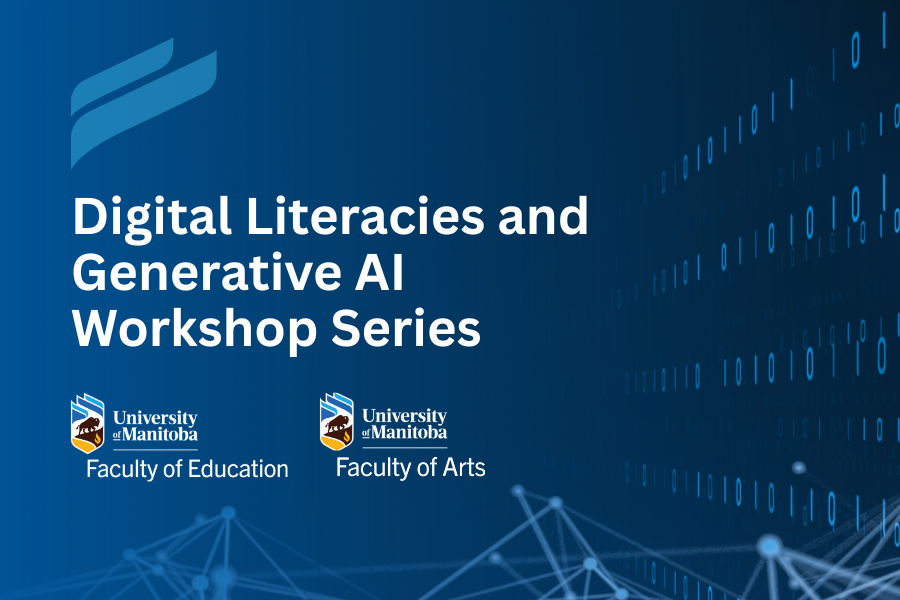Education
Parents of special needs kids protest lack of services

Rebekah WilsonBBC News NI
A parent whose son has special educational needs said she “feels like a prisoner” in her home due to an inability to find him a place in daycare.
Suzy Ward was among about 50 people, including parents and children, who protested outside Stormont on Monday morning over what they say is a lack of support and services.
The protest coincides with the return of assembly members to Stormont following the summer recess.
Education Minister Paul Givan said he had plans to establish a “flagship” capital programme for the special educational needs (SEN) school estate.
Suzy Ward told BBC News NI her son Eoyn was now at home full time, which meant she did not “get a break” and was “constantly on the go”.
“I really feel that we need opportunities and respite and support,” Ms Ward said.
“It’s so difficult. There’s days where we are both at home and I feel like a prisoner.”
Education Minister Paul Givan said he recognised the “real challenges” within the sector, and a plan had been “mapped out”.
“I will need other parties to support me,” he said.
“I met the finance minister just last week, I outlined to him the ask we’re going to require. It’s £1.7bn over the next 10 years.”

Sheena McCann, who was at the protest, said her son Joe is 17 and they were in the process of transitioning him into adult care services.
“In our case we are getting two days in the day centre for a few hours and that’s not going to work – he needs the same place to go to for consecutive days. It’s very difficult to get him out of the house,” she said.
“It’s really left to me and my husband, and it’s really hard to know we can’t leave the house.
“Ten years ago you would have got five days and transport, everyone is being failed here. I can’t believe in this day and age this has been allowed to happen.”

Tina Henderson, who was at the protest for her son Robin, said she was a single mum and received “no support whatsoever”.
“I’m here today because I’m fed up,” she said.
“I got four hours respite all summer, I dread the future of being just stuck in the house.”
She said it was “very hard” for her son to transition to other places and he needs to feel safe to go along with any changes.
Ms Henderson said politicians did not understand because “they aren’t in our world… if they knew they would see the struggles”.
‘It’s not guaranteed’
Ellen Fox’s child, who has additional needs, should be starting nursery this month.
While the mother-of-two has technically secured a place for daughter Alice, the classroom itself is not ready.
“They were supposed to build two new classrooms over the summer here, that they haven’t even started yet,” she told BBC News NI.
“We’re left with a place but no classrooms. So we had to fight for a place in the school. Now we have to fight for a place to have a classroom in the school.”
The school is Ceara Special School in Lurgan, which was the “school of dreams” for the family.
Ms Fox does not yet know the start date for Alice.
“We’re still very much in the air. I was contacted by two different members of staff telling me two different outcomes on dates and school,” she explained.
“We’ve now got a date that work’s going to be started by, which is really positive”.
By the start of next month, Ms Fox said she hopes Alice will “be in her uniform”.
“But it’s still not 100% guaranteed yet,” she added.
 Ellen Fox
Ellen FoxA spokesperson for the Education Authority told BBC News NI that work at Ceara has been delayed “by unforeseen circumstances”.
“The project to deliver two additional modular classrooms was due to commence in July but had to be halted due to the discovery of an underground power cable,” they said.
“EA are working with NIE to resolve the situation. We can confirm that the removal of the underground cable is scheduled for the 16th September 2025. Once this is completed, the construction work at the school is projected to take six weeks.
“In the interim, the school has introduced temporary contingency arrangements for affected pupils.
“EA very much regrets the delay and the disruption it has caused for children and families.”
What is available for children with SEN?
There are about 70,000 SEN students in Northern Ireland and 29,000 of them have an official statement outlining the support they need.
A pupil can receive a statement of SEN, which is a legal document setting out the support they should receive.
A statement – and the support it mandates – ends when a child leaves school, rather than being in place up to the age of 25.
In contrast, in England an education, health and care plan (EHCP) outlines a young person’s special educational needs up to the age of 25.
It is a legal document, which also describes the additional support they need in education or training and the outcomes they would like to achieve.
Though there has been criticism that some councils in England fail to meet deadlines set out in the plan.
In Wales and Scotland there have been recent reforms to help young people with SEN transition from school.
The Department for the Economy estimates that there has been a 134% rise in demand for such services in Northern Ireland over the past two decades.
Education
ATEC to provide long-term stewardship and shape international education growth

The Australian Tertiary Education Commission (ATEC), created in response to last year’s Australian Universities Accord, has begun interim operations and will act as an independent steward for the system, overseeing implementation of reforms aimed at lifting participation, improving equity, and strengthening links between vocational and higher education.
Addressing an audience gathered at the Australian Student Equity Symposium in Sydney, Australia’s education minister Jason Clare said ATEC will ensure long-term reform of the sector and prevent policy momentum from being lost to shifting political cycles.
Clare said reform agendas often lose focus when governments or ministers change. “Almost always, when a big piece of thinking is done to reform or transform a part of the economy, governments will pick off parts of it and then the caravan moves on,” he said.
“I want to make sure that’s not the case here,” he said, reinforcing that ATEC will provide continuous oversight, keeping governments focused on both the unfinished business of the Accord and emerging sector challenges.
While the Accord laid the foundations, Clare stressed it cannot answer every question for the future. “The Accord is a product of a big piece of work in 2023 and it doesn’t necessarily have all the answers for 2030 or 2035,” he said. “This gives us a living process to constantly provide feedback… not just what haven’t we done in the Accord that we need to do, but what else should we be thinking of doing.”
ATEC will negotiate compacts with universities covering funding, purpose, and institutional mission. “At the nitty gritty level, it’s about money, but it’s also about purpose and focus,” said Clare.
“In the future, we do have an ecosystem which looks different than it does today, not worse, better, but different and potentially a little bit more specialised.”
ATEC will also play a central role in Australia’s international education sector, according to assistant minister for international education Julian Hill.
Speaking at the Education Consultants Association of Australia, Hill said the Commission will oversee mission-based compacts requiring institutions to outline their own strategies for international enrolments, rather than imposing one-size-fits-all caps.
Institutions will need to show how they are diversifying, how they’re contributing to national priorities, and how their growth is sustainable
Jason Clare, education minister
“Institutions will need to show how they are diversifying, how they’re contributing to national priorities, and how their growth is sustainable,” said Hill.
The Commission will monitor reliance on specific markets, regional provision, student housing, and overall sustainability, ensuring international growth aligns with broader national objectives.
ATEC is currently operating in an interim capacity and, subject to the passage of legislation, is expected to be fully operational by 2026. The Commission is designed to support a more coordinated and sustainable higher education system, ensuring that reforms progress steadily and that institutions balance domestic and international priorities in line with national policy objectives.
Education
UM Today | Faculty of Education

September 11, 2025 —
The Digital Literacies Lab in the Faculty of Education, in collaboration with the Media Lab in the Faculty of Arts at the University of Manitoba, presents a hybrid speaker series (in-person and online) that will explore the potential and ethical challenges of generative artificial intelligence technologies in education, and the role of digital literacies in this context.
Through engaging talks and workshop-style discussions, this series aims to foster critical dialogue, inspire innovation, and support educators, researchers, and students in navigating the evolving role of AI in teaching, learning, and educational policy. Join us as we delve into opportunities and complexities of artificial intelligence and the role of digital literacies in education and beyond.
Join in-person viewing in the Digital Literacies Lab (RM 328, Education Building) or the Faculty of Arts Media Lab (233 University College) with post-workshop discussions.
All workshops will be streamed on Zoom, with three of the four presenters joining online. Complete event information for each workshop and registration for online viewing can be found here.
Workshops include:
Sept 23 (6:00pm – 7:30pm) – “Generative AI: Implications and Applications for Education” with Bill Cope & Mary Kalantzis
Oct 21 (6:00pm – 7:30pm) – “The End of the World as We Know It? AI, Post-Literate Society and Education” with Allan Luke
November 25 (6:00pm – 7:30pm) – “Assessment Literacy in the Age of AI” with Michael Holden (in person presentation at 328 Education building)
Dec 2 (6:00pm – 7:30pm) – “Digital Literacies as Literacies of Repair” with Rodney H. Jones
Education
$53B Market Growth by 2030 Amid Benefits and Risks

In the rapidly evolving realm of education technology, artificial intelligence is reshaping how students absorb and retain knowledge, prompting educators and researchers to scrutinize its long-term effects. Recent studies highlight both transformative potential and subtle pitfalls, as AI tools like chatbots and personalized learning platforms become classroom staples. For instance, a Boise State University professor, Jenni Stone, recently explored these dynamics in an article for The Conversation, emphasizing how AI might inadvertently hinder deep learning by providing quick answers that bypass critical thinking.
Stone’s analysis draws on empirical data showing that while AI excels at delivering customized content, it can reduce students’ engagement with complex problem-solving. Her work, published amid a surge of 2025 research, aligns with findings from a Microsoft Education Blog report, which surveyed educators and found that 68% believe AI enhances teaching efficiency but warns of overreliance eroding foundational skills.
Personalized Learning’s Double-Edged Sword
This tension is evident in global trends, where AI-driven adaptive systems tailor lessons to individual paces, potentially boosting outcomes for diverse learners. A study in the journal Education Sciences, conducted at Romania’s National University of Science and Technology POLITEHNICA Bucharest, polled 85 students and revealed that 72% reported improved academic performance through AI tools, yet 45% expressed concerns about diminished critical analysis abilities. The research underscores AI’s role in democratizing education, particularly in underserved regions, by offering real-time feedback that human teachers might not scale.
However, the Bucharest study also flags ethical dilemmas, such as data privacy and algorithmic biases that could exacerbate inequalities. Echoing this, a World Economic Forum piece from 2024, updated with 2025 insights, argues that AI in “Education 4.0” promotes equity by preparing students for AI-integrated workplaces, but only if implementations prioritize human oversight.
Market Growth and Institutional Shifts
The economic impetus is undeniable, with market projections painting a bullish picture. According to a Maximize Market Research report featured on OpenPR, the global AI in education sector is poised to balloon from $4.17 billion in 2023 to $53.02 billion by 2030, driven by tools automating administrative tasks and fostering interactive learning. This growth is fueled by investments in smart tutoring systems, as noted in Netguru’s blog on AI’s educational impact, which details how such technologies are streamlining everything from grading to curriculum design.
Yet, institutional adoption varies widely. A UNESCO report from early 2025, discussed during their Digital Learning Week, convened global leaders to address AI’s inclusive potential, stressing the need for policies that ensure human-centered futures. The report warns that without ethical frameworks, AI could widen digital divides, a sentiment mirrored in student perspectives from EDUCAUSE Review, where firsthand accounts with tools like ChatGPT reveal enhanced creativity but limited depth in understanding.
Educators’ Evolving Roles
Teachers are at the forefront of this shift, transitioning from lecturers to facilitators in AI-augmented environments. Insights from THE Journal’s 2025 predictions highlight experts forecasting AI’s dominance in personalized tutoring, potentially reducing teacher workloads by 30% while demanding new skills in AI literacy. Posts on X, formerly Twitter, reflect public sentiment, with users like tech influencers noting AI’s inevitability in education, comparing it to calculators’ integration and urging curricula to evolve rather than resist.
A ScienceDirect systematic review from 2024, extending into 2025 analyses, synthesizes over 100 studies showing AI’s prowess in tracking progress but cautions against replacing human interaction. This is particularly relevant in higher education, where AI aids in identifying at-risk students early, as per the U.S. Department of Education’s AI report.
Challenges in Skill Development
Deeper concerns emerge around cognitive impacts. Stone’s Conversation piece delves into experiments where AI-assisted groups showed short-term gains in creativity but struggled with original ideation without prompts, suggesting a “crutch effect.” Complementing this, a GPA Calculate Tools analysis on generative AI usage indicates that in 2025, 75% of students employ these tools, correlating with higher grades yet lower retention of core concepts.
International examples amplify these findings. China’s nationwide integration of AI into curricula, as reported on X by figures like Mario Nawfal, aims to build a tech-savvy workforce, embedding AI from primary levels to universities. However, critics argue this could prioritize rote efficiency over innovative thinking.
Future Directions and Policy Imperatives
Looking ahead, balancing AI’s benefits with safeguards is crucial. The UNESCO-convened discussions in 2025 advocate for global standards, emphasizing teacher training and equitable access. A student’s viewpoint in EDUCAUSE Review questions if systems can keep pace, proposing AI as a collaborator rather than a replacement.
Ultimately, as AI permeates education, ongoing research like that from Boise State and international bodies will guide its trajectory. By fostering thoughtful integration, stakeholders can harness AI to elevate learning without compromising the human elements that define true education.
-

 Business2 weeks ago
Business2 weeks agoThe Guardian view on Trump and the Fed: independence is no substitute for accountability | Editorial
-
Tools & Platforms1 month ago
Building Trust in Military AI Starts with Opening the Black Box – War on the Rocks
-

 Ethics & Policy2 months ago
Ethics & Policy2 months agoSDAIA Supports Saudi Arabia’s Leadership in Shaping Global AI Ethics, Policy, and Research – وكالة الأنباء السعودية
-

 Events & Conferences4 months ago
Events & Conferences4 months agoJourney to 1000 models: Scaling Instagram’s recommendation system
-

 Jobs & Careers2 months ago
Jobs & Careers2 months agoMumbai-based Perplexity Alternative Has 60k+ Users Without Funding
-

 Podcasts & Talks2 months ago
Podcasts & Talks2 months agoHappy 4th of July! 🎆 Made with Veo 3 in Gemini
-

 Education2 months ago
Education2 months agoMacron says UK and France have duty to tackle illegal migration ‘with humanity, solidarity and firmness’ – UK politics live | Politics
-

 Education2 months ago
Education2 months agoVEX Robotics launches AI-powered classroom robotics system
-

 Funding & Business2 months ago
Funding & Business2 months agoKayak and Expedia race to build AI travel agents that turn social posts into itineraries
-

 Podcasts & Talks2 months ago
Podcasts & Talks2 months agoOpenAI 🤝 @teamganassi


